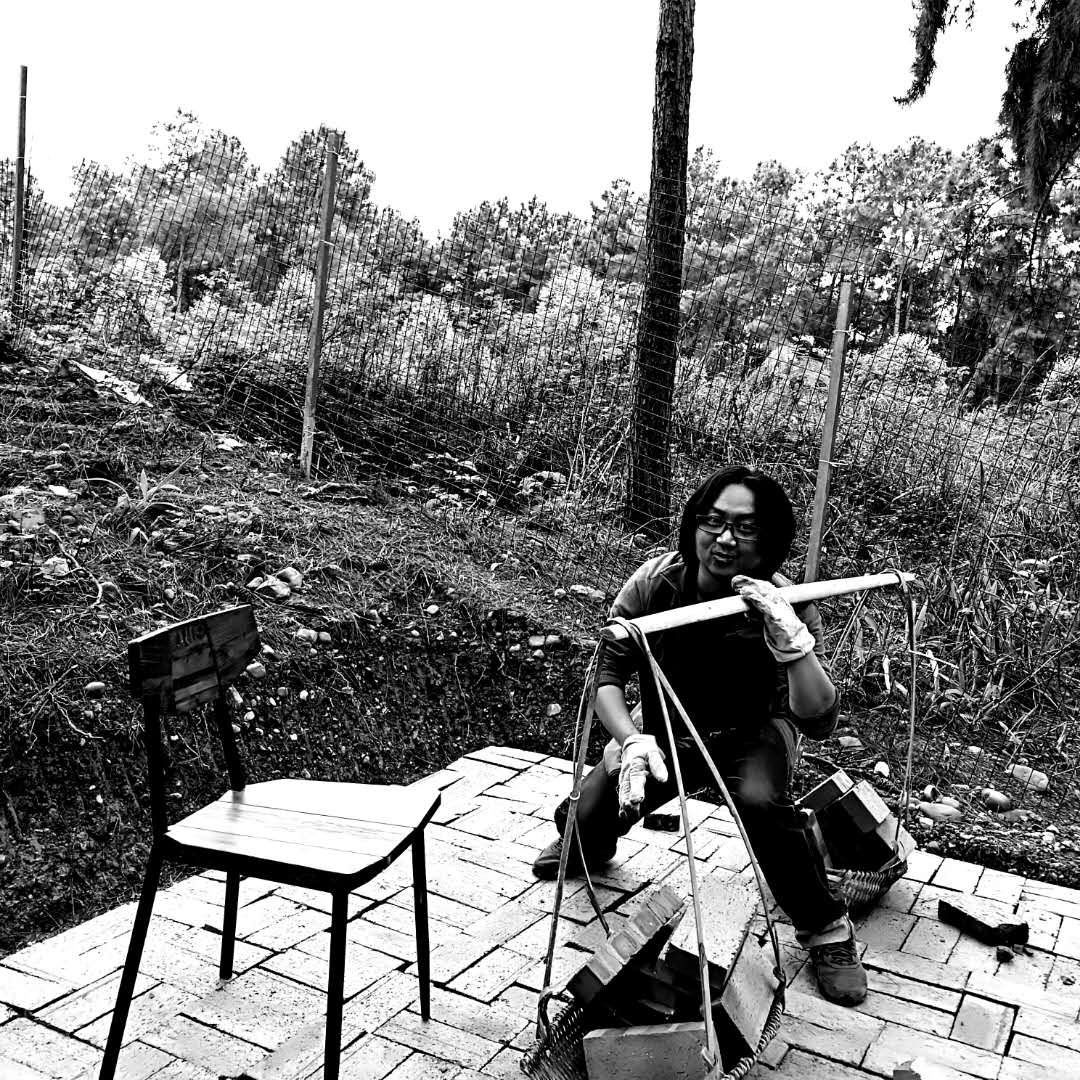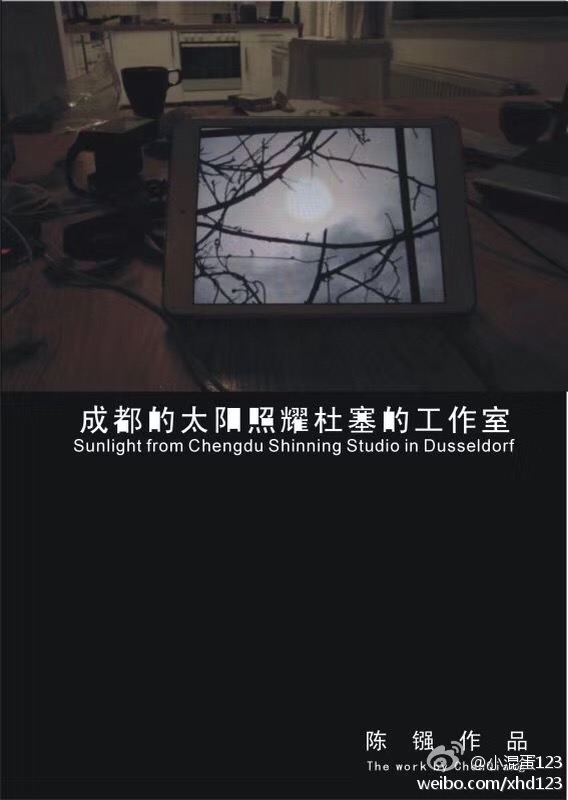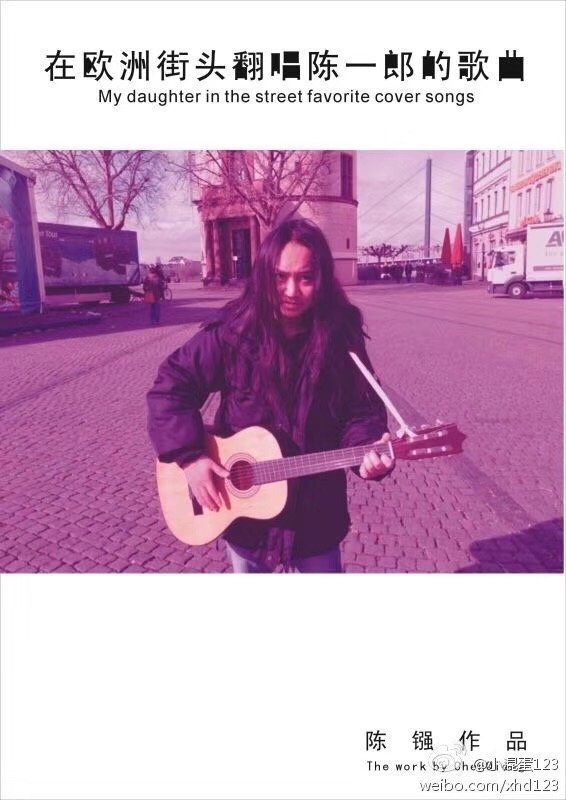Memory porcupine
Chen Qiang
(1)
Thinking about the years of life, it’s not really living, it’s living vividly in memories. The present life feels like a blank paper, tasteless to eat, and difficult to start writing. The immaculate whiteness can’t even be used as a tissue for the pains of life. So, let’s indulge in a memory today, so that the day won’t be wasted in idle talk.
Ten years ago, I was excited to return to Chongqing for the school anniversary. I stayed up all night and wrote a lengthy memoir of over ten thousand words. After all, it had only been a few years since I left Huangjuping. However, when I attended the anniversary in the unfamiliar new campus, I wandered around the school gate like a lost soul. Among my childhood classmates, only Wang Niandong and I returned. Each department and class had their own dinner parties, and even my wife, who accompanied me to the anniversary, found her group, while I could only pretend to be genuinely interested while staring at the alumni wall, repeatedly searching for my own name. By now, I could accurately recognize the names above, below, left, and right of my own name, and even those on the diagonals.
In the end, it was only when I returned to Huangjuping that I felt the sense of revisiting the old place. That evening, I went straight to the affiliated middle school. There was a promotional billboard for the school anniversary at the entrance of the Academy building. Surprisingly, my portrait was placed in the most prominent position on the wall. It was a picture of me with long hair, resembling an assassin from a period film. I quite liked this photo, and I suppose the designer also liked it, capturing the rebellious spirit of the affiliated middle school students. Initially, I wanted to take the sign of the middle school with me that day, but I later realized it was embedded in the wall and couldn’t be moved, so I gave up.
When I learned that the affiliated middle school was closing down, I was deeply saddened. After all, the best years of my growth were spent there.
(2)
The fleeting youth, the memories that slowly fade, and the gradually expanding body, are they still the same person? When examining one’s own memories, it feels like watching someone else’s movie.
Before attending the affiliated middle school, my parents said that if I got accepted into the Fine Arts affiliated middle school, they would buy me a guitar. I always had a music dream, sometimes even stronger than my passion for art. The Fine Arts school was a magical place where many dreams collided.
1994 was a golden year for rock music in China. That year, I passed the entrance exam for the affiliated middle school, but my family didn’t fulfill their promise to buy me a guitar. So, at school, I used my lunch money to buy a red cotton guitar for 95 yuan. During this time, I learned to play some popular songs from that era by following a guitar tutorial book called “Liu Chuan’s Guitar Tutorial.” However, this book didn’t have any rock songs, which frustrated me. Later, I met another student who was also taking the exam for the Fine Arts school, and he could play “Flower House Girl” on the guitar. This was great news for me. I would bring my guitar and hang out with him every day. Eventually, I found out that he had another guitar tutorial book by Liu Chuan, which included not only “Flower House Girl” but also songs like Black Panther’s “Take Care” and “Don’t Break My Heart.” This student friend even told us that if he got accepted into the Fine Arts school, he would join the band at the activity center. His words inspired me, so I tried to find him a lot of drawing materials, hoping that he would get accepted into the Fine Arts school.
Winter vacation arrived, and due to the financial gap caused by buying the guitar, I didn’t have money to buy a train ticket home. So, I reluctantly sold the guitar. Fortunately, I sold it at the original price. It was the only wooden guitar I ever bought for myself. The new semester began, and I returned to Huangjuping. Although I hadn’t played the guitar for a semester, I still remembered the chords. After settling into school, I went to find that student friend, but he had already left Huangjuping. I heard that he gave up on applying to the Fine Arts school. After a period of melancholy, I felt that I should get to know more people who play rock music. Once everything was back to normal after the start of the new semester, the school’s activity center started holding weekend dances. The weekend dances at the Fine Arts school were different from others. The music was played by bands formed by students from various departments. I went to see it once and it felt amazing. It was my first time experiencing a live performance, and it felt special. Even though they were playing music for ballroom dancing, the real notes drove me wild. During the intermission, they performed a cover of Cui Jian’s “Rock on the New Long March,” faithfully recreating the classic sound from TV. This was the kind of rock music I desired.
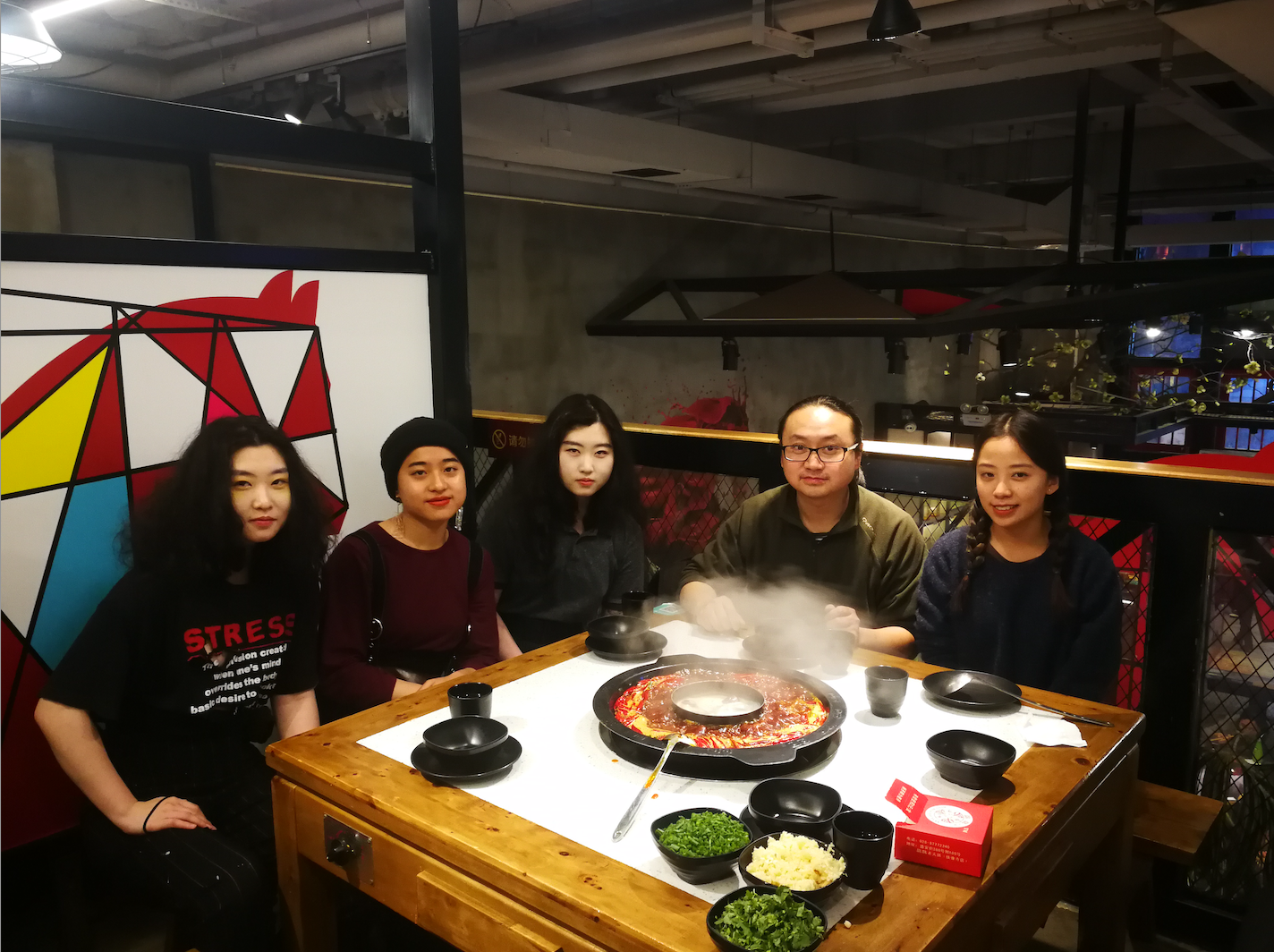
The next afternoon, when they were rehearsing, I went to the activity center with a pack of cigarettes (even though I didn’t smoke myself). During a break, I handed cigarettes to the senior musicians and started chatting with them. At that time, Wu Bo showed me the greatest kindness, and that was the beginning of our friendship.
I remember that the windows on the second floor of the activity center faced the boys’ dormitory. In the latter part of the rehearsal, they played some popular songs at the time (to accompany the dance). As soon as the lead singer started singing, there was a chorus from the opposite building, one song after another, with voices echoing through the woods, never-ending.
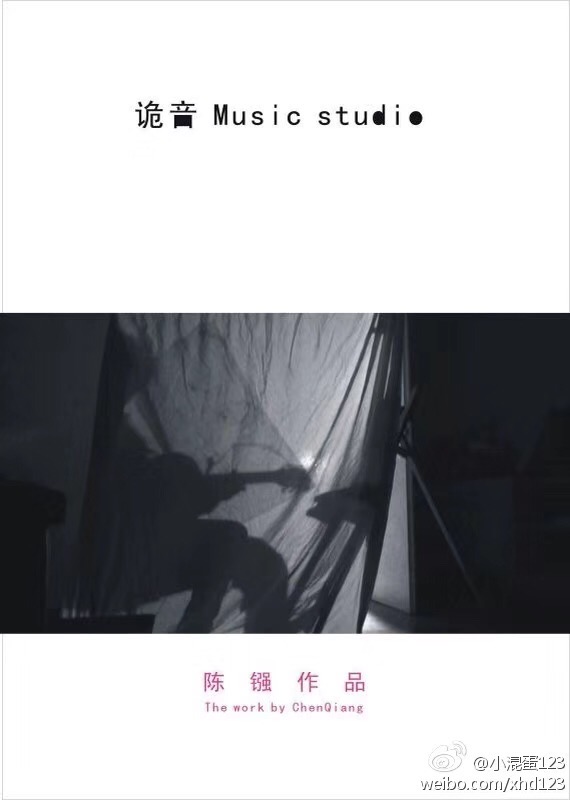
After the rehearsal that day, Wu Bo and I sat on the stone bench in front of the student activity center and talked about many rock bands we both liked. At that time, listening to rock music was still quite rare in the overall environment. Rock was still considered alternative. Even in the Fine Arts school, many people only liked a few representative works of rock bands and didn’t take it too seriously, not really delving into it systematically. (Don’t be fooled by how now people easily share news about Dou Wei in their social circles, or how Tang Dynasty dominates the timeline. Back then, listening to rock music in the dormitory would be ridiculed by roommates, or even collectively shunned.) What touched me the most was that when we got excited talking about it, Wu Bo handed me the electric guitar he was playing and told me to take it back to my dormitory for practice. It was my first time touching an electric guitar. I carried it through the entire Fine Arts school to my dormitory and played it all night. I’m very grateful that my dormitory mates didn’t interfere with me that night. It seemed that during the years I played guitar in the dormitory, my roommates never interfered with me. On the contrary, there was a period when my roommate Zhou Haibo especially enjoyed falling asleep while listening to my guitar.
From the next day, I started rehearsing with Wu Bo and the others, and the activity center felt like our band’s home ground. I found out that the band was called “Impression Band.”
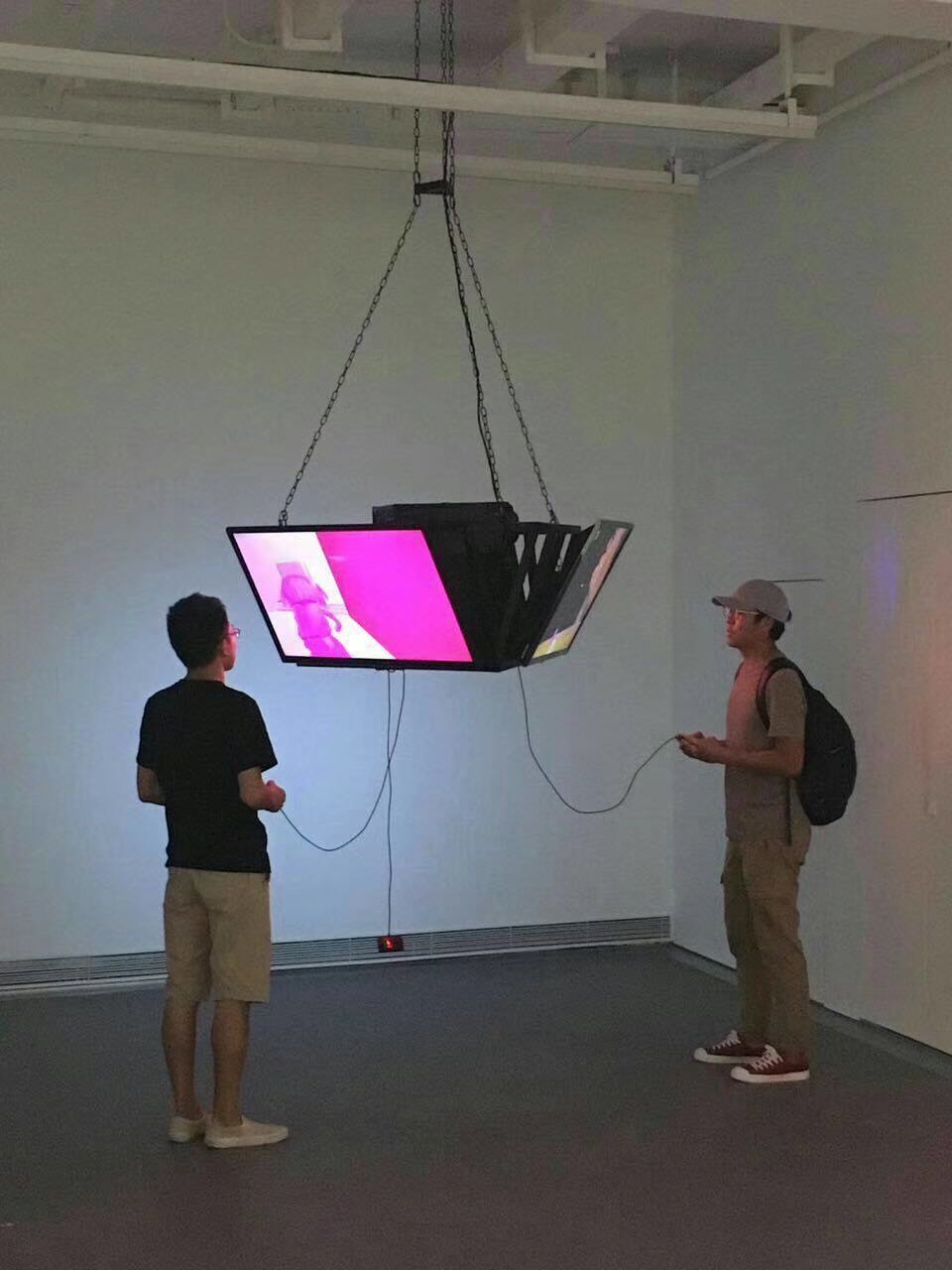
Wu Bo began teaching me how to play songs, how to play chords, practice finger placement, and learn music theory. That’s when I realized that those rock songs weren’t just played according to the notes in a book; they were played by ear, with some small arrangements. Later, I heard that the band’s drummer was going to graduate, so I called my classmate to learn how to play drums, but it didn’t last long before he quit.
Later, I found out that the original rock extravaganza at the Fine Arts school happened a few years ago, during the New Year’s concert in 1992. Many songs by Cui Jian and Hei Bao were performed, and it was this event that brought the independent spirit of rock to the Fine Arts school. Wu Bo played the guitar that year when he was still an applicant, and it was the first time “Rock on the New Long March” was performed at the Fine Arts school.
At that time, the Fine Arts school had a movie theater on the left side as you entered the main gate. In its final years, the theater was deemed unsafe and was demolished a few days after the 2000 school anniversary celebration.
The last movie I watched in that theater, and the only one I ever watched there, was “God of Gamblers.” It was the best movie-watching experience, probably in 1994. When Andy Lau revealed four Aces at the climax of the movie, the packed theater suddenly erupted. Everyone stood up and cheered, the atmosphere was more electrifying than when the national soccer team qualified for the World Cup. Some people threw their clothes, others hugged each other, and even some girls burst into tears, not hiding their excitement. The entire audience became immersed in the storyline, going crazy. This was the “crazy” Fine Arts school.
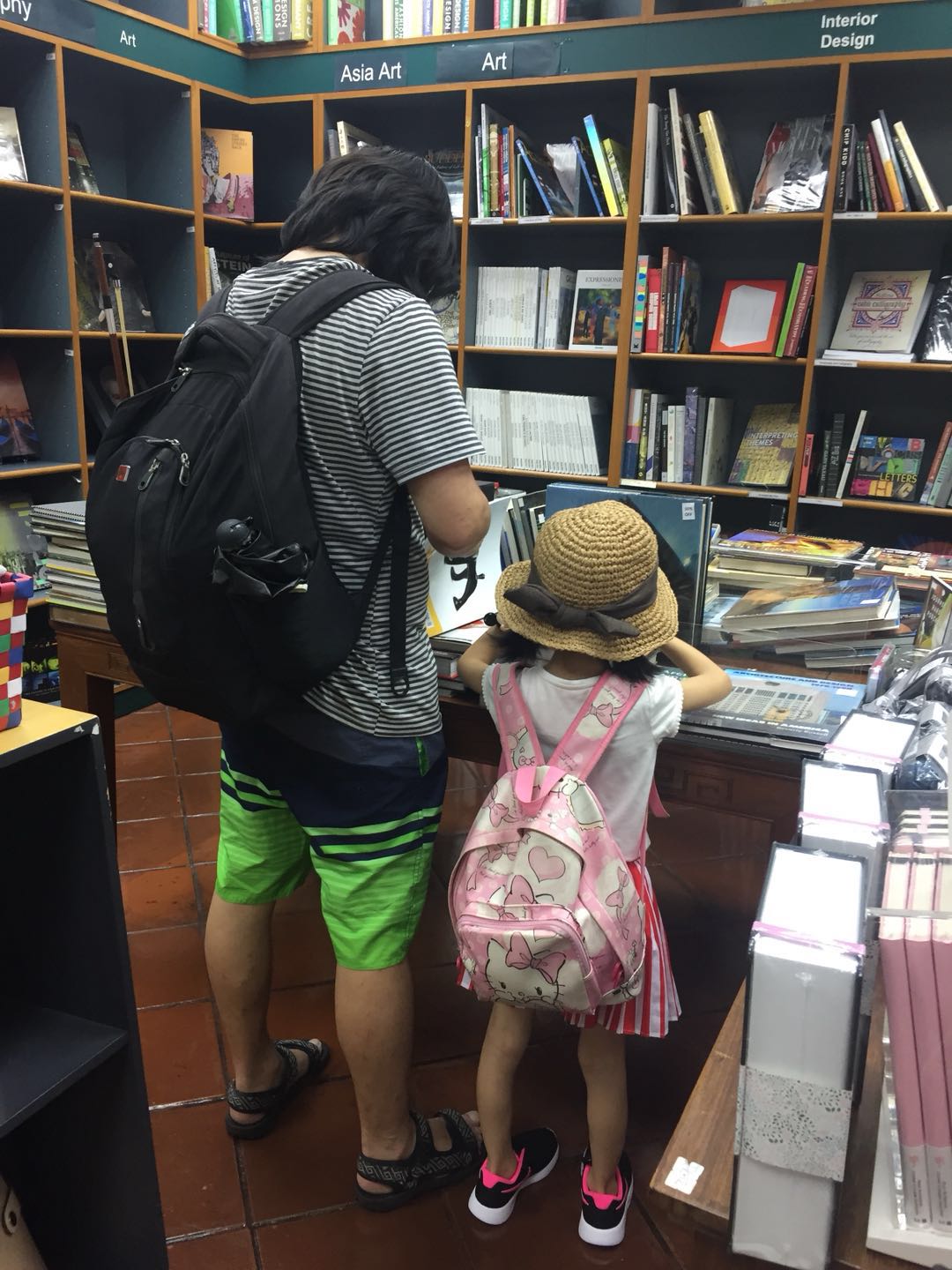
This kind of “craziness” also appeared during the “Three Colors Cup” football tournament. During my time at the Fine Arts school, it felt like the “Three Colors Cup” turned an art palace into a football club. Football always had a proud tradition at the Fine Arts school. The sculpture of the Fine Arts school winning the championship in the Chongqing Campus League at the school gate would momentarily confuse newcomers: Is this an art school or a sports school? Years later, when I met friends from the Fine Arts school, they still remembered who was from which department and their jersey numbers, but often forgot names and only remembered numbers.
During the football season, both male and female students in the whole school loved to skip dinner and go to the stadium to watch the games while eating. In the mid-1990s, the traditional strong teams were the Oil Painting Department, Sculpture Department, Faculty Team, and Attached Middle School. The champions usually came from these teams. The Oil Painting Department had the best awareness and teamwork, the Sculpture Department had the strongest and most competitive players, the Faculty Team had the best goalkeeper (if I remember correctly, it was Teacher Huangshan), and the Attached Middle School had the strongest coaching team with Principal Zhang Zheng and Teacher Huang Qin, who were skilled at tactics.
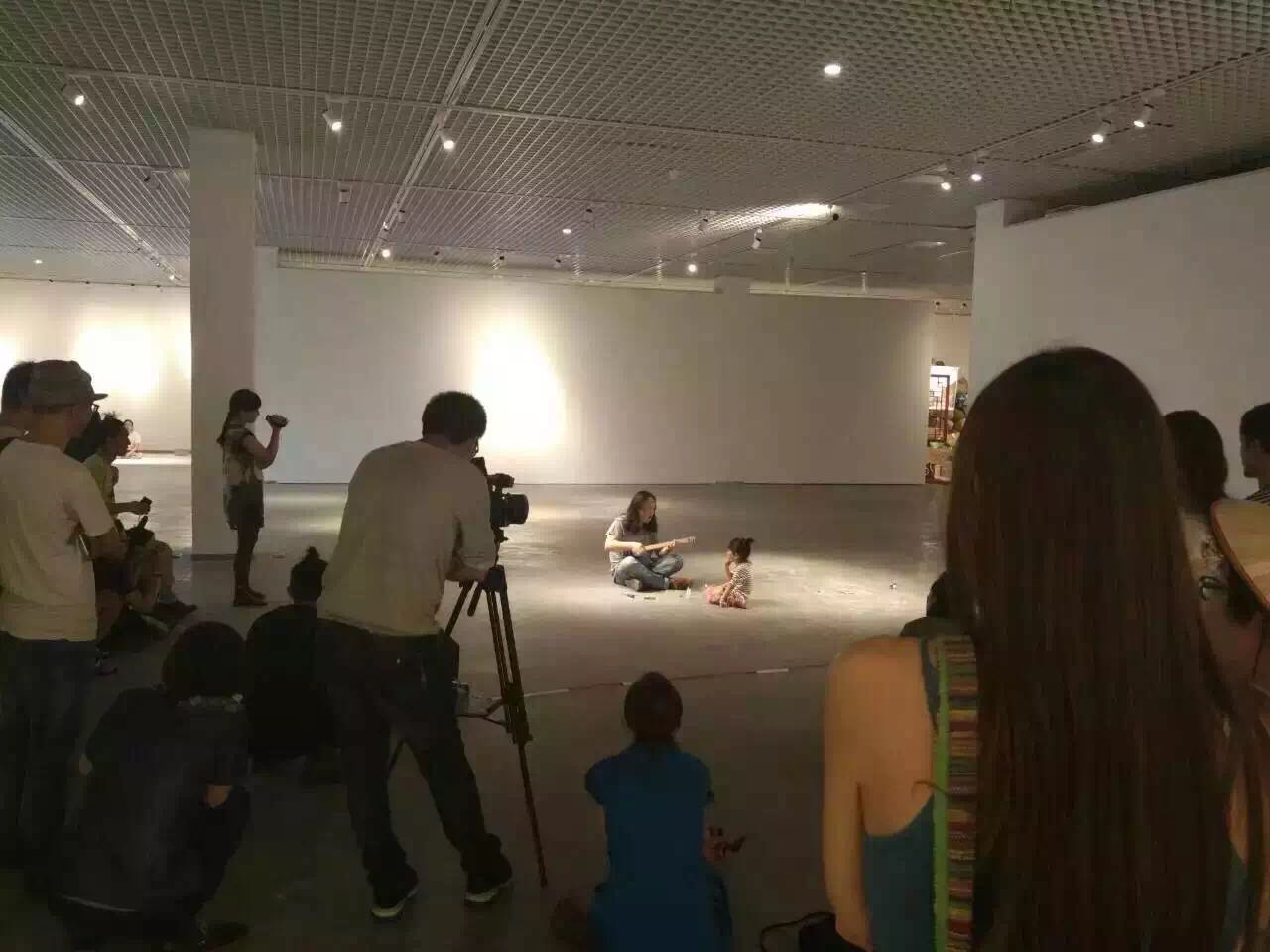
The football season was also a showcase for male students at the Fine Arts school and a season of romance. The girls in the stands and cheerleading team were fearless in their cheers and slogans.
During the football season, the best business outside the Fine Arts school was the two bars, “Old Nest” and “Sunshine.” Old Nest had cheap drinks, and the owner was sociable. I remember that Zhang Yu’s first streaking incident started from Old Nest as the starting point. Our first off-campus band performance was also held there, and it was where my wife and I had our first date.
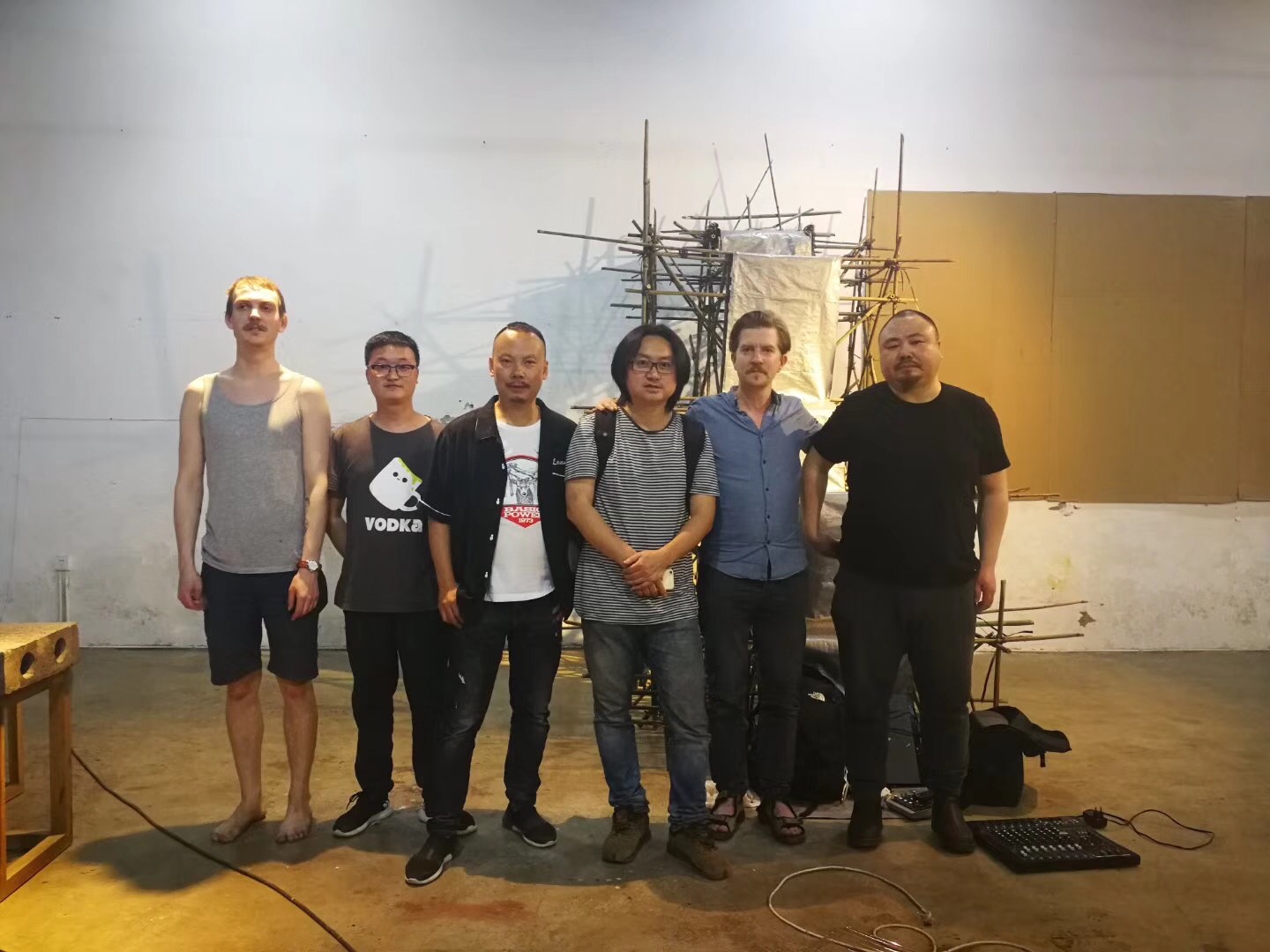
(3)
Things that disappear are often quickly forgotten. When everyone talks about the magical place “Transportation Tea House” where you can travel back in time, are they forgetting about the disappeared “Wangjiang Tea House”?
Wangjiang Tea House had a wide view, where you could truly see the Yangtze River. Although later on, more and taller buildings were constructed in front, the view of the Yangtze River remained visible. It was a suitable place for small group meetings. The tea was cheap, with floral tea costing 50 cents per cup, compressed tea at 40 cents, and plain water (boiled water) at 20 cents, and they even had a television. Transportation Tea House installed televisions later on, but Wangjiang Tea House always had one. During weekends, many students from the Fine Arts school gathered there to watch the Jia-A Football League matches. Sometimes, people also gathered to watch TV dramas. I watched the last few episodes of the 1998 version of “Water Margin” here.
Upstairs at Transportation Tea House, there were several rooms where friends stayed or activities were held. The “Transportation Tea House Studio” in those days, consisting of Zhang Yu, Zhang Wei, Chu Yun, and others, had their debut performance here. During that debut, Zhang Yu stripped naked, which resulted in a report to the school, leading to disciplinary action against him, as well as Chu Yun.
Huang Kui also lived upstairs for a period of time. During that time, I often went to find them to paint portrait oil paintings together. We liked sitting at the table in front of the television in Wangjiang Tea House, facing away from the TV. The volume of the television in the tea house was set quite high, so the people watching TV were facing us, and we could paint their portraits. During that time, we were obsessed with painting and occasionally played music. Wu Bo had already graduated and returned to Xichang. Huang Kui and I met Qiu Jiongjiong and formed a band called “PAIN.” The band stayed together until Qiu Jiongjiong left Huangjuping and Huang Kui graduated. We even participated in some performances. Our most impressive original song was “Power Plant, Power Plant, I Love You.” It was a genuine punk rock song, with Huang Kui on bass, me on guitar and vocals, and Qiu Jiongjiong on drums. During that time, we even had another drummer, a printmaking major polar bear.

During that time, we actually had very little time for rehearsals. We spent most of our time drinking tea at the tea house. It was only right before performances that we remembered to find a place to rehearse. The Fine Arts school no longer had weekend dances, and dancing was no longer popular, so there were basically no official bands left. However, the activity center was still available. So, I went to find Director Pan from the Student Affairs office, as he was in charge of the activity center. I always called him “Uncle Pan” because I had been hanging out at the activity center since my first year at the affiliated high school. He had a good impression of me, and whenever I asked to borrow the activity center, he readily gave me the keys. The most lacking equipment for rehearsals at that time was drumsticks. Qiu Jiongjiong played the drums vigorously, breaking all the drumsticks. He then went downstairs and broke off branches from the small trees at the entrance. After a rehearsal, the small trees at the entrance became like drumsticks.
PAIN band represented the Fine Arts school and participated in a performance at Jiefangbei Pacific Department Store. It was in the spring of 1998, and other bands from Sichuan International Studies University and Jian Academy also performed. When we arrived at Jiefangbei, the venue was already packed with people, which surprised us. After squeezing our way to the front of the stage, we realized we had forgotten to bring drumsticks. After some twists and turns in preparation, it was our turn to go on stage. We performed the song “Power Plant, Power Plant, I Love You” to let everyone know that our Fine Arts school had a power plant chimney that stood tall like a monument. The PAIN band gained quite a few fans from this performance, and the next day, rock musicians from other universities came to play music with us, discuss art, and even stayed in Huangjuping with us, hanging out together every day, talking and enjoying ourselves. Sometimes, tanks and armored vehicles would pass by on the streets of Huangjuping, and during that time, whenever we encountered them, we would shout loudly, follow them, and run alongside them. It was like meeting a ship coming from the opposite direction in the vast sea—an exciting and somewhat crazy experience.

(4)
In 1996, during the years when Huangjuping Video Hall was popular, the ticket sales at the Cultural Station’s video hall were always booming. So, Wu Bo went to talk to Uncle Pan about turning the student activity center into a screening hall to show art films. Director Pan, as always, readily agreed. As a result, the activity center became a dance hall on weekends and showed videos on other nights, allowing everyone to watch some legendary films.
The most memorable moments for me were the packed screenings. The first one was when we showed “Bin Xu.” The students at the Fine Arts school still longed for some classics. On that evening, before the 7 o’clock screening, the crowd packed the second floor of the activity center, and Wu Bo was busy telling me, “Be careful with so many people. We don’t want any mishaps.” Suddenly, I transformed into a security guard and helped maintain order. We ended up screening the film continuously for three days. Later, we found the Dutch version of “Van Gogh” in the library of the Fine Arts school. It was an English version without Chinese subtitles, and about half of the audience left during the intermission. Nevertheless, there were still many people, and we continued to screen it for three days. There was also a film called “The Wall.” Learning from the previous experience, we even found a version of this music film with Chinese subtitles. We played it repeatedly, and I can’t remember how many times exactly, but I recall that many classmates watched it more than twice.
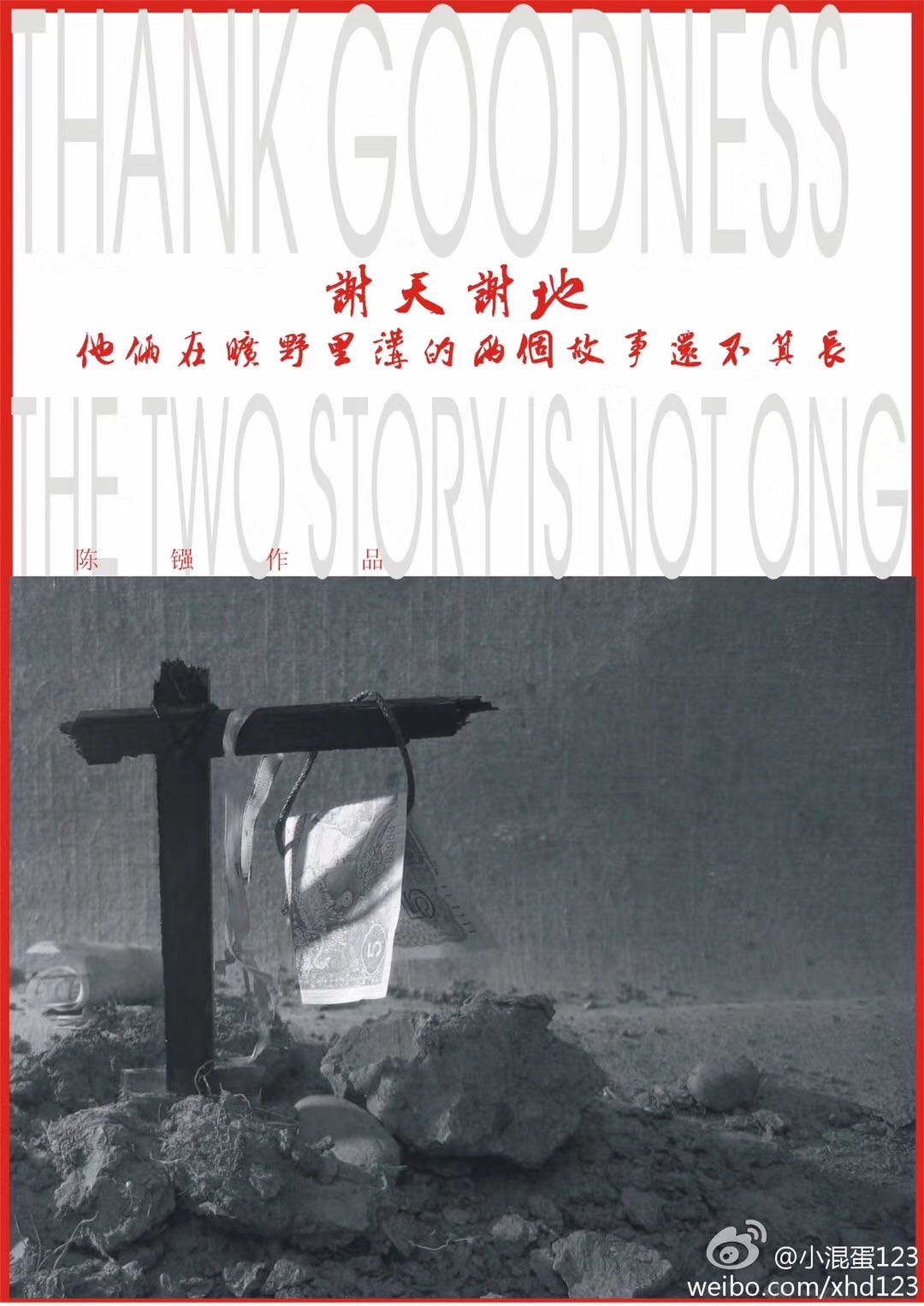
Later, the activity center was used for graduation defenses, so the video hall was closed. In the second semester, Wu Bo began his graduation project and stopped running the video hall. But the band continued, and we even invited musicians from the recently returned MIDI Music School in Beijing to join us for two of Wu Bo’s solo concerts. During that time, we also organized a karaoke competition, and without any suspense, our band’s lead vocalist, Pu Yan, won the championship. During one of the performances, there was a small incident. When we were singing the chorus at a fast pace, suddenly the video machine’s connection failed, and there was no accompaniment or TV screen. The staff desperately tried to fix it, but Pu Yan remained calm and continued singing without accompaniment until just before the chorus finished, when the picture and music suddenly reappeared, perfectly in sync. The applause was thunderous, and there was no doubt about the champion. This incident became a fond story of the Fine Arts school for a long time.
These memories continued to revolve around music. In fact, discussing music in the Fine Arts school was quite fitting. The music we talked about was mostly rock music or sound art—these things were originally considered rebellious within the ranks of conventional music.
During those years, we not only played rock music at the Fine Arts school but also began exploring our own paths in sound art. Years later, I met Sun Wei, who was also a guitarist at the Fine Arts school. He was still doing music, and his music still seemed rooted in the aesthetics of the art system, including sound installations and visual elements derived from sound. Many years later, when we reminisced about those years we spent at the Fine Arts school with music as our guide, we realized how precious that “independent spirit” nurtured by the Fine Arts school was.
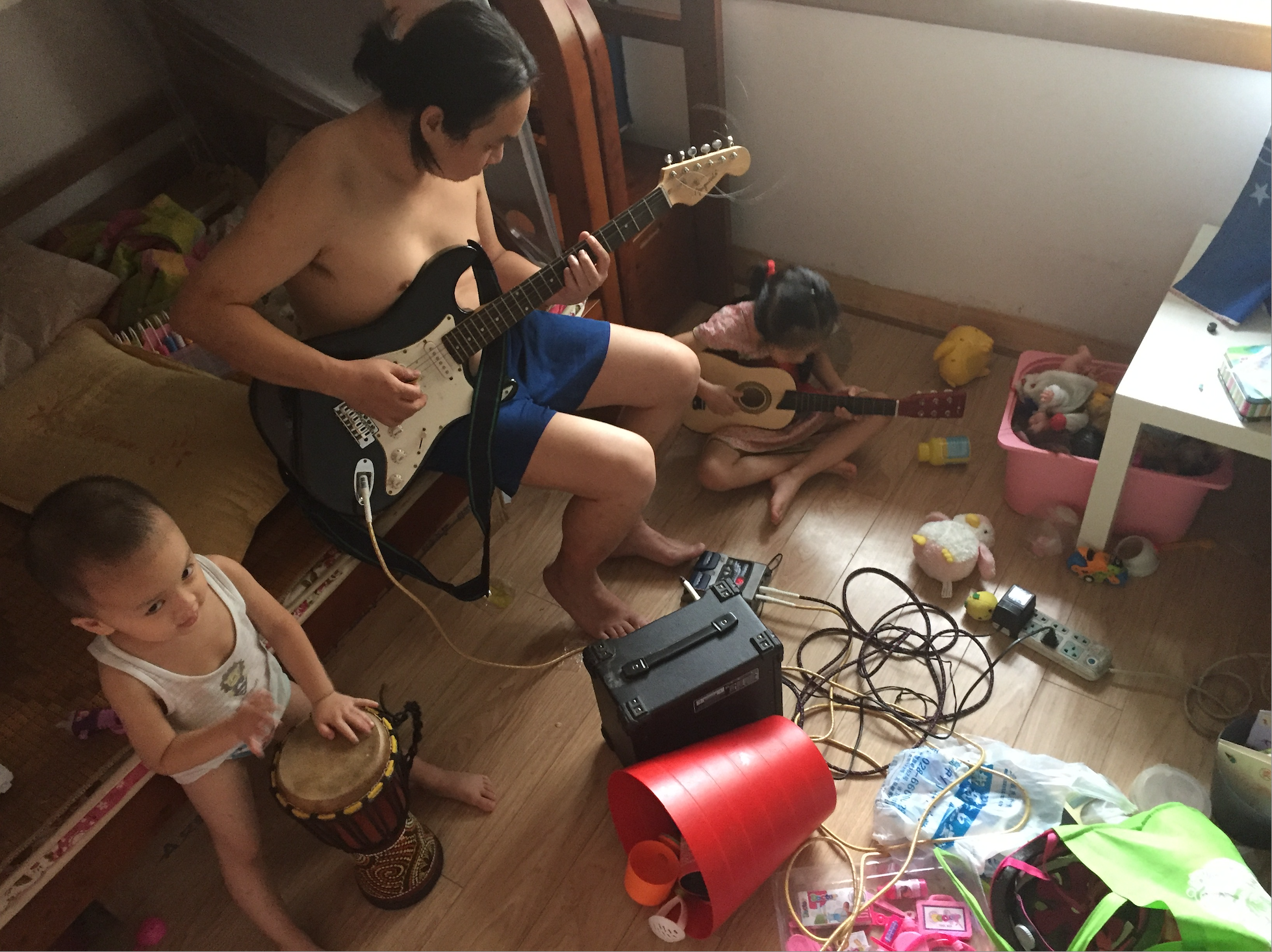
(5)
There’s a narrow alley called Xinjian Road in Huangjuping, bustling with people from different walks of life, including students, applicants, street vendors, and indigenous people. People come and go, and each semester brings a new group of individuals.
After leaving school, I lived in a 12-square-meter rented room on Xinjian Road. I still maintained the habit of listening to music and playing the guitar, leaving space for friends who loved music and art to come over and chat day and night. Those years brought me back to the time when I was an applicant. The nights in the rented room were filled with passionate discussions and heated arguments. But only as applicants, we shared a common goal: to get into the Fine Arts school. However, in that small room, the group of us engaged in endless conversations, lost sight of our goals, and had no idea what we could accomplish on the path of art. We wondered if the fire of art had burned out, while the sweltering heat of Chongqing confined us to a small room, feeling lost and frustrated like stray dogs.

A year after Zhang Guoping graduated, he returned from Beijing and brought with him an animation business. He came to find me on Xinjian Road, and I distributed the work to several friends who also lived there. We all worked diligently, and when it was time to eat, we would invite each other to have meals at the school cafeteria. Eating at the Fine Arts school was the most economical and suited our tastes. Staying up late became our shared routine, and we wouldn’t forget to shout loudly in the middle of the night to let each other know that we were still in an excited state. It felt the same as when we were applicants, with clear goals.
Next door to my house lived a street vendor, who would wake up early every morning to go to a private slaughterhouse to butcher pigs for others. While I stayed up late until the morning, I would hear him put on his rain boots and leave, signaling that it was time for me to sleep.
It has been 18 years since I left Huangjuping, but almost every night, my dreams still take me back to the Fine Arts school. The shops next to the school are no longer there, but the shop owners have moved their businesses across the street, transforming them into supermarkets. Aunt Zhou, who operated the barbecue stall at night, relocated it near the market and expanded its size. Xinjian Road is no more, replaced by tall buildings where I can see identical structures on the opposite side. The walls of the Fine Arts school have become a graffiti haven for Chongqing tourists. The years I can’t go back to exist only in memories, like a drunken boar running wild in the forest of recollections.
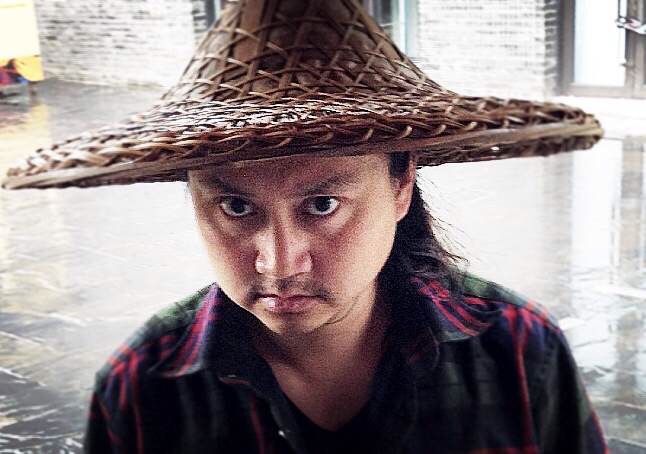
ChenQiang
He graduated from Sichuan Academy of Fine Arts in 2002, Moving to New York in 2023。
He started experimental art creation in 2002. At 2005, Chen finished the film trilogy <Cut off>, <Stream cut>, <Heart sacrifice>, then he started creating more forms of Mashup arts, like performance music works <Heart voice> (2010), <September>(2011), <Twinkle>(2012), and two computer game art works, five independent animation art projects. There were two mashup media works being completed by Chen, named <Red girl smash art museums> and <Dream syndrome>, the two works including forms of computer games, animations, sculptures, plays, and picture books.
記憶力豪豬
陳鏹
(一)
想想這些年的生活,根本不是生活,是活生生的活著,在回憶裏活著,感覺眼前的生活就像白紙,吃起來沒味道,寫東西無從下手,潔白無瑕也不能拿來做手紙膈的人生疼,那今天就來一段回憶把,這樣一天也就沒沒有白話。
十年前要回重慶參加校慶就覺得興奮,於是連夜伏案疾書洋洋灑灑寫下了一萬來字的回憶,畢竟那時離開黃桷坪的時間也就幾年。但隨後的校慶去到陌生的新校區,自己像個孤魂野鬼一樣遊走在校門口,兒時的同學也就我和王念東回去了。晚飯各班各系邀朋喚友,就連陪我來校慶的妻子也都找到組織了,而我只能在校門口裝著很認在真的樣子看著那堵校友牆,反複找自己的名字,已經能很准確地知道我名字的上下左右都是些誰了,甚至斜上下左右是些誰我都記下了。
最後還是回到黃桷坪才有故地重遊的感覺。那天晚上回到黃桷坪就直接進附中了一趟。當時在進學校的那棟學院教學樓處就有了附中的校慶宣傳牌,牆上居然把我的頭像放在了最耀眼的位置。那是一張我長發披肩的樣子,像極了古裝電影的刺客,我挺喜歡這張照片的,估計排版的老師也喜歡這張照片,也的確有附中生的那種桀驁不馴吧。其實那天去是想把附中的招牌給拿走,但後來發現那塊牌被鑲嵌在牆上的,搬不動,也就作罷。
當年知道附中不辦了的時候我非常沮喪,畢竟最美好的成長都在這裏面。
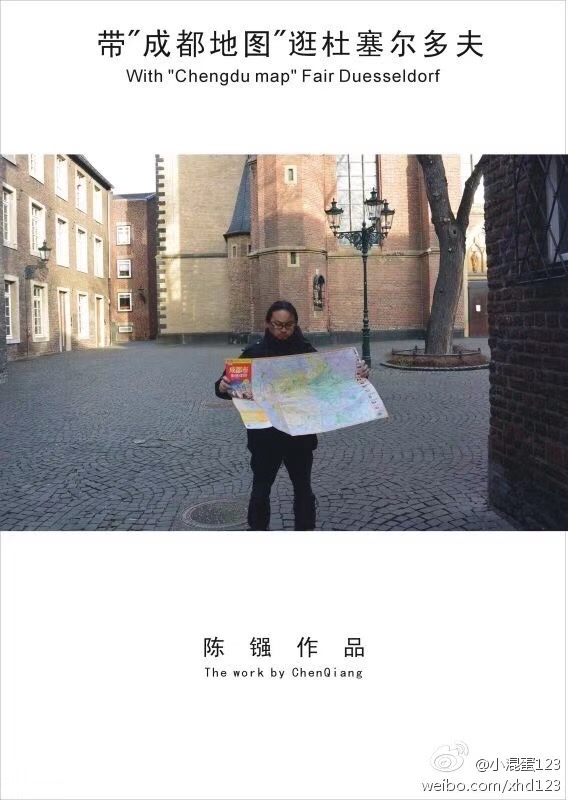
(二)
呼嘯而過的青春,那些慢慢變淡的記憶和漸漸發胖的身體是不是還是同一個自己?審視自己的回憶的時候就像是在看別人的電影。
上附中前父母說,如果我考上了美院附中就給我買一把吉他。我一直有一個音樂夢,有時比美術更強烈。美院是個神奇的地方可以和很多夢想碰撞。
94年是中國的一個黃金的搖滾年,那一年我考起附中,家裏人也沒有兌現買吉他的承諾,在學校我用自己的飯錢買了一把95元的紅棉吉他。這期間自己跟著一本《劉傳吉他教學》學了些那時候的流行歌曲的彈唱,這本書裏根本沒有搖滾歌曲,這著實讓我很煩躁。後來認識一個考美院的考生,他會彈《花房姑娘》,這下好了,我每天抱著吉他去找他玩,後來知道他有另一本《劉傳吉他教學》,裏面不光有《花房姑娘》還有黑豹的《Take Care》《Don’t Break My Heart》等。這位考生朋友還告訴我們幾個,他如果考上了美院,就要去占領活動中心的樂隊。他說的話刺激著我,我也就想辦法給他找很多畫畫的資料,希望他能考上美院。
寒假到了,由於買吉他的經濟缺口,導致沒錢買火車票回家,於是忍痛把吉他賣掉了,還好是原價賣的,這也是我自己唯一買的一把木吉他。新學期開始了再次回到黃桷坪,雖然一學期沒彈吉他,但還是沒有忘記那些和弦。到校安頓好之後就去找那位考生朋友,但他已經離開黃桷坪了,聽說他放棄了考美術學院了。一段惆悵之後,我覺得我該去認識更多玩搖滾的人。開學一切恢複運轉後,學校的活動中心也開始了周末舞會。美院的周末舞會和其他的舞會不一樣,舞曲伴奏是由樂隊來搞,樂隊是各個系的學生組建。我去看了一次,感覺非常好,第一次看現場,感覺特別好。雖然只是演奏的交誼舞伴奏,真實的音符就是那麼讓人癲狂,中場翻唱崔健的一首《新長征路上的搖滾》,活脫脫再現電視裏的經典音場,這就是我想要的搖滾。

第二天下午他們排練的時候,我就帶著一包香煙(我自己是不抽煙的)去到活動中心。趁練習間隙我給樂手學長們遞上香煙,於是打開話匣子攀談起來。那時候給我最大善意的就是吳波,這也就是我們友誼的開始。
我記得當時活動中心二樓的窗戶正對男生寢室,後半段排練的是一些當時的流行歌曲(為了配合伴舞)。當主唱亮嗓一開始,對面樓上就開始大合唱,一首接一首,正是聲震林木,不絕如縷。
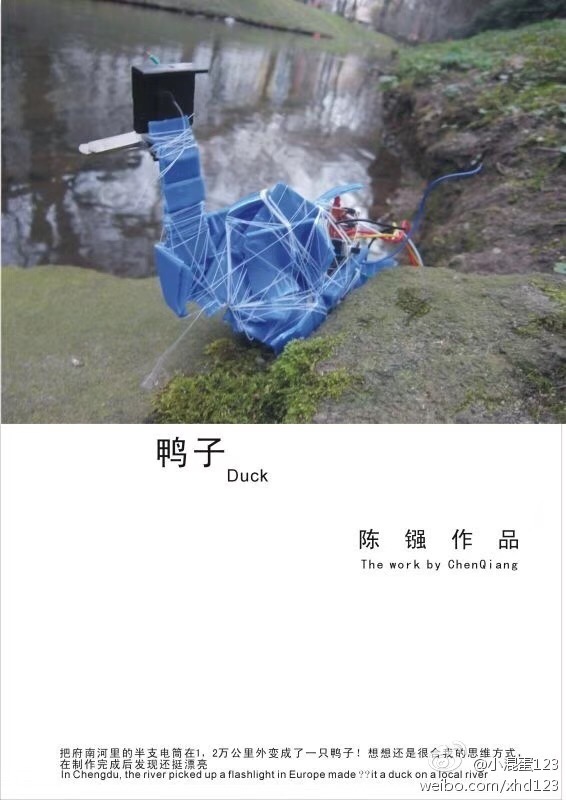
當天排練結束後,吳波就和我就坐在學生活動中心前的石凳上,聊了很多我們都喜歡的搖滾樂隊。那時候整個大環境聽搖滾的真的還是很少,搖滾還是很另類,即便是在美院很多人也只是喜歡那些搖滾樂隊的幾個代表作品而已,不會太認真地系統去聽——(不要看現在動輒朋友圈就轉發竇唯怎麼怎麼的新聞,動輒刷屏唐朝怎麼怎麼,那時候在寢室聽搖滾會被同寢室的嘲笑,甚至被集體排斥)。最讓我感動的是聊到高興處,吳波直接把那把他正在彈的電吉他拿給我,讓我帶回寢室去練習。這是我第一次觸碰電吉他,我背著它穿越整個美院回到寢室,抱著它彈了一晚上,非常感謝那天晚上寢室的同學沒有對我進行幹預。好像我在寢室彈吉他幾年裏,室友都沒有對我進行過幹預,反而有段時間周海波同學特別喜歡聽著我的吉他入睡。
第二天起我開始跟著吳波他們排練了,而活動中心就感覺是我們樂隊的主場,知道了樂隊叫“印象樂隊”。
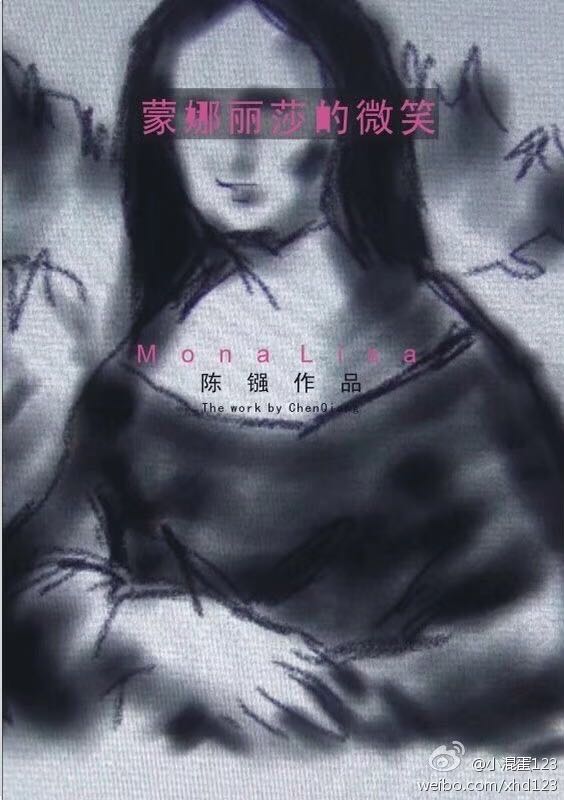
吳波開始教我扒歌,扒和弦,練習指法,學習樂理。這時我才知道,那些搖滾根本不是照著書上彈的,而是用耳朵聽出來並做些小小的編曲改動的。後來又聽說樂隊的鼓手要畢業了,於是把我的同學叫來學習打鼓,但沒多久他就打了退堂鼓。
後來知道美院最初的那個搖滾盛宴是在幾年前,就是92年的新春音樂會上,唱了很多首崔健的歌以及黑豹的歌,也是這次晚會把搖滾的獨立精神之風吹到了美院。那一年吳波彈吉他,當時他還是考生,那是《新長征路上的搖滾》第一次在美院。
那時美院有個電影院,在進大門的左手邊,它的最後幾年被認定成了危房,破土拆除是2000年校慶後的幾天。
我在電影院看的最後一部電影,也是唯一在這個電影院看的一部電影是《至尊無上》。那是最好的一次看電影體驗,應該是94年,在這個電影尾聲劉德華翻開底牌是四個A的時候,爆滿的電影院裏突然被點燃,全部站起來歡呼,那陣勢比國足打進世界杯還要沸騰。有人扔衣服,有人擁抱在一起,甚至一些女生號啕大哭起來,豪不掩飾自己的激動,全場觀眾都投入到了劇情裏,像瘋了一樣。這,就是“瘋”美院。
這樣的“瘋”,在學院“三色杯”足球賽上也出現過。我在美院的那些年,感覺“三色杯”足球賽是把一個藝術殿堂生生地變成了一個足球俱樂部。足球在美院一直都有光榮傳統,校門口的那個重慶校園聯賽美院拿冠軍的雕塑會讓剛來美院的人恍惚一下,到底是體校還是美院?若幹年後碰到美院的朋友都還記得誰誰誰是什麼系的多少號,甚至都忘記了名字,只記得號碼。
球賽季全校的男生女生都喜歡把晚飯打起,去球場看臺一邊看一邊吃。90年代中期的傳統強隊是油畫系、雕塑系、教工隊、附中,基本冠軍都在這幾個隊裏產生。油畫系意識最好、最默契;雕塑系身體最壯、最能打;教工隊守門員最厲害,我沒記錯的話應該是黃山老師;附中有個最強的教練團隊,張箏校長和黃勤老師是最會排兵布陣的教練。
球賽季也是美院男生的展示季,也是一個戀愛的季節,看臺上的女生們的;啦啦隊什麼口號都敢喊。
球賽季美院外面最好的生意,就是那兩家酒吧“老巢”和“陽光”。老巢的酒便宜,老板健談。我記得張羽的第一次裸奔是從老巢這裏作為起點的,我們的第一次校外樂隊演出會也是在這裏,我和我妻子的第一次約會也是在這裏。
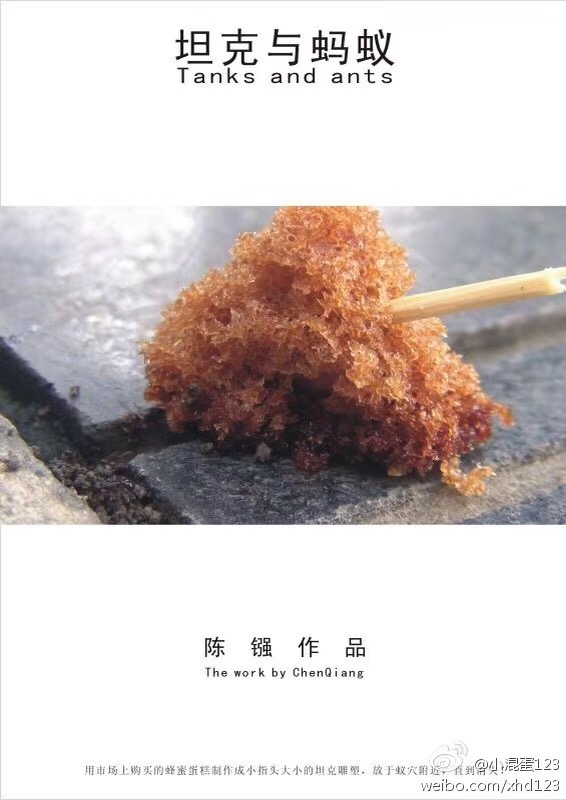
(三)
消失了的東西往往很快被遺忘。當大家談論可以穿越回過去的那個神奇地方“交通茶館”的時候,是不是大家正在遺忘消失了的“望江茶館”呢?
望江茶館的視野很廣,真能看見長江,雖然後來前面的高樓越來越高越來越多,但還是一直能看見長江。這裏很適合小團體開會,茶便宜,五毛一杯花茶,沱茶四毛,白碗(白開水)兩毛,而且有電視。交通茶館的電視都是後來才安裝的,而望江茶館一直都有,周末看甲A足球賽會圍很多美院學生在這裏,有時候也有人圍觀連續劇,當年98版《水滸傳》我就是在這裏看的最後幾集。
交通茶館樓上還有幾個房間,前後好幾個朋友都在那裏住過,又或者在這裏搞些活動。當年的《交通茶館工作室》張羽、張瑋、楚雲他們幾爺子也就是在這裏完成了處子秀,當時張羽還因為在這次處子秀上脫光了衣服被舉報到學院,被記處分,楚雲也被處分。
黃奎也在樓上住過,那段時間我常去找他們一起去畫人物油畫。我們喜歡在望江茶館裏坐在電視機前面的那張桌子上,背對電視機,茶館的電視放得很高,這樣看電視的人就正對我們,就可以畫他們的肖像。那段時間像瘋了一樣畫畫,間歇也玩音樂。那時吳波已經畢業回到了西昌,我和黃奎遇上了邱炯炯,一起組建了一支樂隊,取名“PAIN(刺痛)”。樂隊維系到邱炯炯離開黃桷坪,黃奎畢業,期間還參加了一些演出。我們最拉風的那首原創是《電廠電廠我愛你》,是一首地地道道的朋克,黃奎貝斯,我彈吉他並主唱,邱炯炯任鼓手,期間還有一個鼓手是版畫系的白極熊。
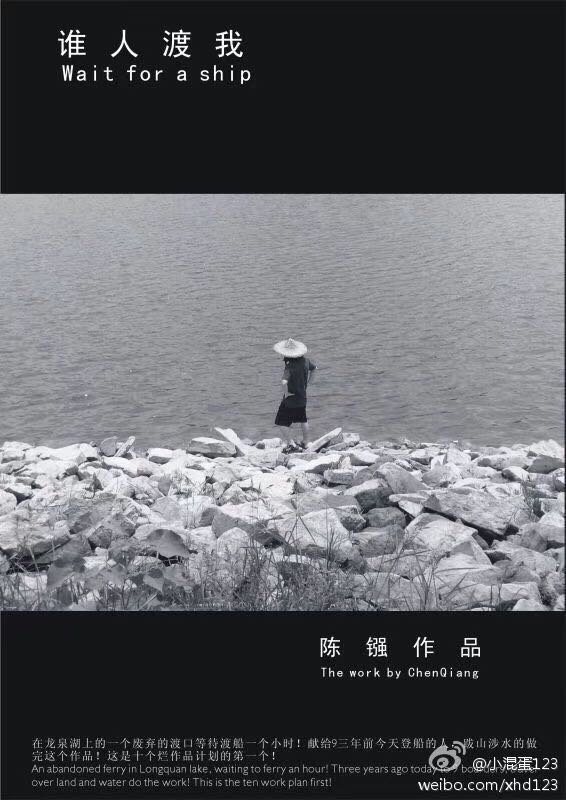
那段時間我們其實排練的時間非常少,幾乎都在茶館喝茶,要演出前我們才想起找地方排練。那個時候美院已經沒有周末舞會,已經不流行跳舞,也就基本沒有官方的樂隊了,但活動中心還空著。於是我就去找學生處的潘處長,他是直接管學生活動中心的領導,我一直叫他“潘叔叔”,因為從附中一年級開始我就愛在活動中心混,所以他對我的印象也很好,每次借活動中心他也都會爽快地把鑰匙給我。那時候排練最緊缺的就是鼓棒,邱炯炯打鼓還是很猛,把鼓錘全部錘斷了就下樓去折門口的那些小樹的樹枝,一場排練下來,門口的小樹成了樹樁。
PAIN樂隊在解放碑太平洋百貨代表美院去參加了一次演出,那是98年的春季,一起演出的還有川外的樂隊和建院的樂隊。從黃桷坪趕到解放碑的時候現場已經人山人海,嚇了我們一跳,好不容易擠到舞臺前發現沒帶鼓槌,一波三折的准備之後該我們上場了,一首《電廠電廠我愛你》告訴大家,我們的美院所在地有一座電廠煙囪像紀念碑一樣高大引人注目。PAIN樂隊還因這次演出圈了不少粉絲,第二天就有其他大學的搖滾樂手來找我們玩音樂,找我們侃藝術,甚至住在黃桷坪和我們天天膩在一起,談天說地,不亦樂乎。黃桷坪街道上有時候會過坦克和裝甲車,那個時間段的我們每次遇到都會和坦克與裝甲車大聲呼喚,跟隨它奔跑,就像在茫茫的大海上遇見對面來的船一樣,特別興奮,有一點瘋狂,有時甚至歇斯底裏。
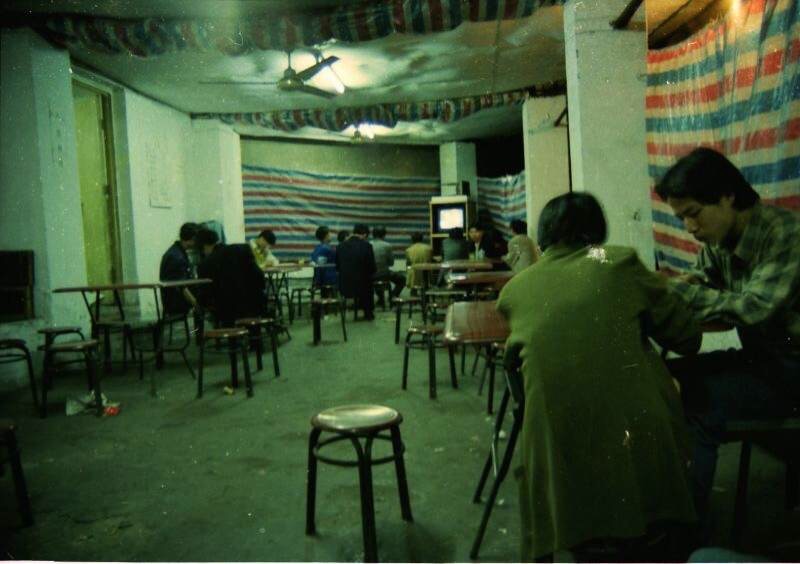
(四)
96年在黃桷坪錄像廳盛行的那些年裏,文化站的錄像廳每天票房爆滿,於是吳波去和潘叔叔商量把學生活動中心做成放映廳,播放文藝電影,潘處長還是那麼豁達地點了頭。於是活動中心周末夜晚是舞廳,平時的夜晚就放錄像,這樣可以讓大家看到一些傳說中的影片。
我印象最深的是幾次放映的爆棚,第一次是播放《賓虛》,美院的學生還是渴望一些經典。那天晚上七點放映前黑壓壓的人群把活動中心二樓擠得水泄不通,吳波忙前忙後對我說:這麼多人注意不要出事喲。頓時我又變身成了保安,協助維持秩序。於是連續播放了三天該片。之後在美院的圖書館找到了荷蘭版的《梵·高傳》,是沒有中文字幕的英文版,中場走了一半人,但也還是很多人,也連續放了三天。還有一部《迷牆》,有了之前一部影片的教訓,我們甚至找到了這部音樂電影的中文字幕版,反複放了幾場我也記不清了,我印象中有很多同學是來看過兩次以上。
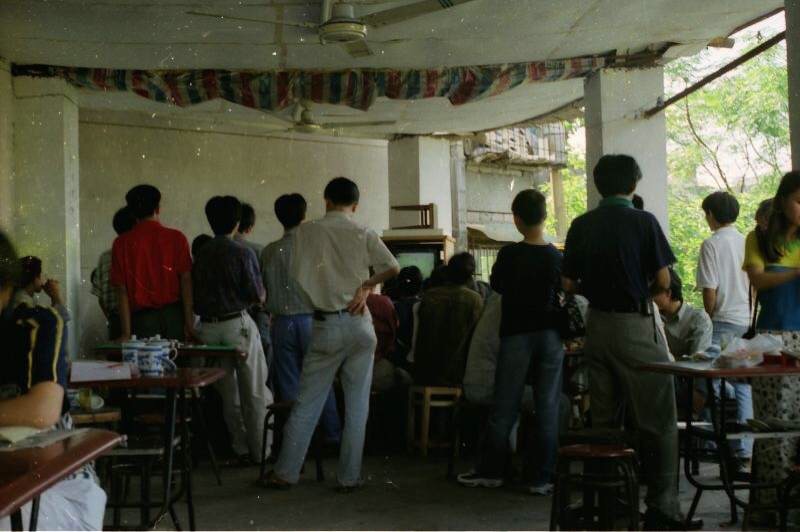
後來活動中心要用來畢業答辯,就把錄像廳關了。第二學期吳波也進入了畢業創作,再也沒有做錄像廳。但樂隊依然還在繼續,甚至邀請了剛從北京回來的迷笛音樂學校的樂手,一起完成了兩次吳波的個人演唱會。期間還做了次卡拉OK大賽,大賽冠軍毫無懸念地被我們樂隊的女主唱蒲燕奪得。演唱期間還出了個小插曲,當快唱到副歌部分的時候,突然錄像機連接線出了故障,沒有了伴奏也沒有電視畫面,於是工作人員拼命檢修,而蒲燕依然鎮定自若無伴奏地繼續唱下去,直到副歌快要唱完了突然畫面和音樂出現了,唱和伴奏分毫不差地完美結合。現場掌聲一片,冠軍毫無懸念。這事有很長一段時間成為美院的佳話。
這段回憶一直沿著音樂在走,其實在美院談論音樂是很合適的,我們談論的音樂更多是搖滾樂或聲音藝術,這些玩意兒原本就是音樂正規軍殿堂裏的叛徒。
那些年我們不光只是在美院玩搖滾樂,後來我們也開始了各自在聲音藝術上的探索。若幹年後有遇到之前也是美院吉他手的孫偉,他依然在做音樂,而且這些音樂感覺還是在美術系統下的審美裏,包括聲音的裝置,以及聲音為觸角衍生開來的影像等。多年後,再次談起那些年我們在美院期間以音樂逆行時的那種只有美院能孕育的“獨立精神”,感覺是多麼的彌足珍貴。

(五)
黃桷坪有個新建路,窄窄的巷道,繁雜的空間吞吐著各色人等,包括學生、考生、棒棒、原住民,有人來有人走,每個學期換季這裏進出的人就換一撥。
在離開學校後,我住在新建路的一間12平米的出租屋裏,依然保留著聽音樂和彈吉他的習慣,並留有空間,這樣也不斷有玩音樂和畫畫的朋友來我這裏夜談、日侃。那些歲月又把時空拉回了當考生的時候,那時的夜晚也是在出租屋裏聽人高談闊論或互相爭得面紅耳赤,但只有當考生的時候考生們才有一個共同的目標,就是考上美院。而這時的這個小房間裏,侃侃而談的一群家夥都和我一樣沒有了目標,根本不知道自己在藝術的道路上還能幹些什麼,或藝術的火已經滅了,而悶熱的重慶把這群人趕進了一個小房間裏,象破狗一樣迷茫又不甘。
張國平畢業一年後從北京回來,帶來了畫動畫的業務,於是他也來到新建路找到我,於是我把業務分發給同樣住在新建路的幾個朋友。大家埋頭苦幹,飯點時分大家又相互邀約著去美院食堂吃飯,那個時候還是在美院吃飯最劃算,也最合胃口。熬夜也就成了共同的作息規律,也不忘半夜大聲吆喝兩聲,讓彼此知道還處於興奮狀態,而這種感覺和當考生時那種目標明確又是一樣的了。
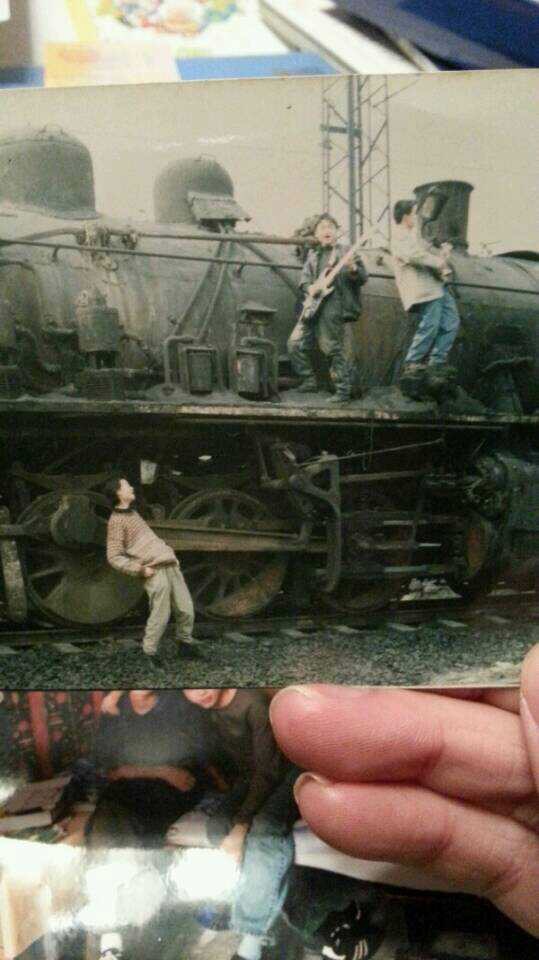
我的房子隔壁住的是一個棒棒,他每天會一早起床去私人屠宰場替人殺豬,我每天熬夜到早上,聽見他起床穿上雨靴出門了,就知道我也該睡了。
我離開黃桷坪已經18年了,但這麼多年每當夜晚做夢幾乎都還是在美院。學院旁邊的店鋪已經沒有了,但店鋪老板把鋪面搬到了馬路對面變成了超市;夜晚燒烤攤的周阿姨把燒烤攤擺到了菜市場附近更大了;新建路沒有了,原址拔地而起的高樓可以看到對面一模一樣的高樓;美院的外牆成了重慶一日遊的塗鴉聖地。回不去的歲月唯有回憶,像喝醉了的豪豬一樣在記憶的森林裏到處亂竄。
陳鏹(陳強)
2002年畢業於四川美院。
2023年移居紐約。
2002年開始實驗藝術創作,2005年開始創作《割》三部曲《割離》《割流》《心祭》之後開始更多的藝術形式的混搭創作,三部曲《心聲音》2010《九月之聲》2011《看吧閃閃的聲音》2012(影像藝術,聲音藝術,行為藝術)就是這個時期完成的,在這之後完成獨立電子遊戲項目2個,獨立動畫項目5個,更多的是混搭媒介藝術項目,目前正在完成和進行中的項目有《小紅妹妹砸美術館》和《多夢症》(遊戲,動畫,雕塑,劇場,繪本) 《乳牙》以個人與家庭一起的創作項目,《公共空間的展開》系列創作等。先後被邀請於德國、新西蘭、法國做展覽和學術交流以及駐留創作。其作品被美國北卡州大學圖書館、哥倫比亞大學圖書館以及德國杜塞爾多夫城市文化局以及栗憲庭電影基金等國內外機構和個人收藏。
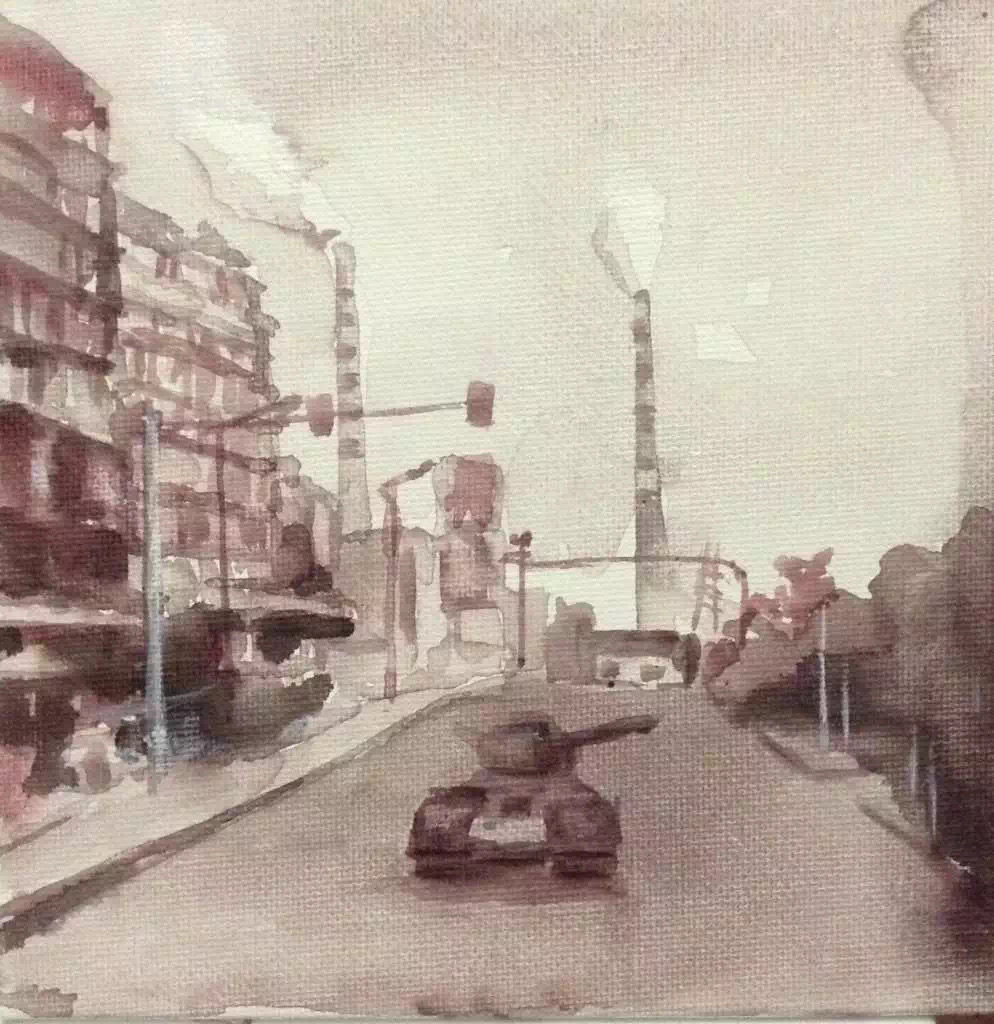
NYRCA Annual Projects “Outside of Art · Storytelling”
Grace Young
NYRCA 年度項目《藝術之外·故事會》
楊 俊



